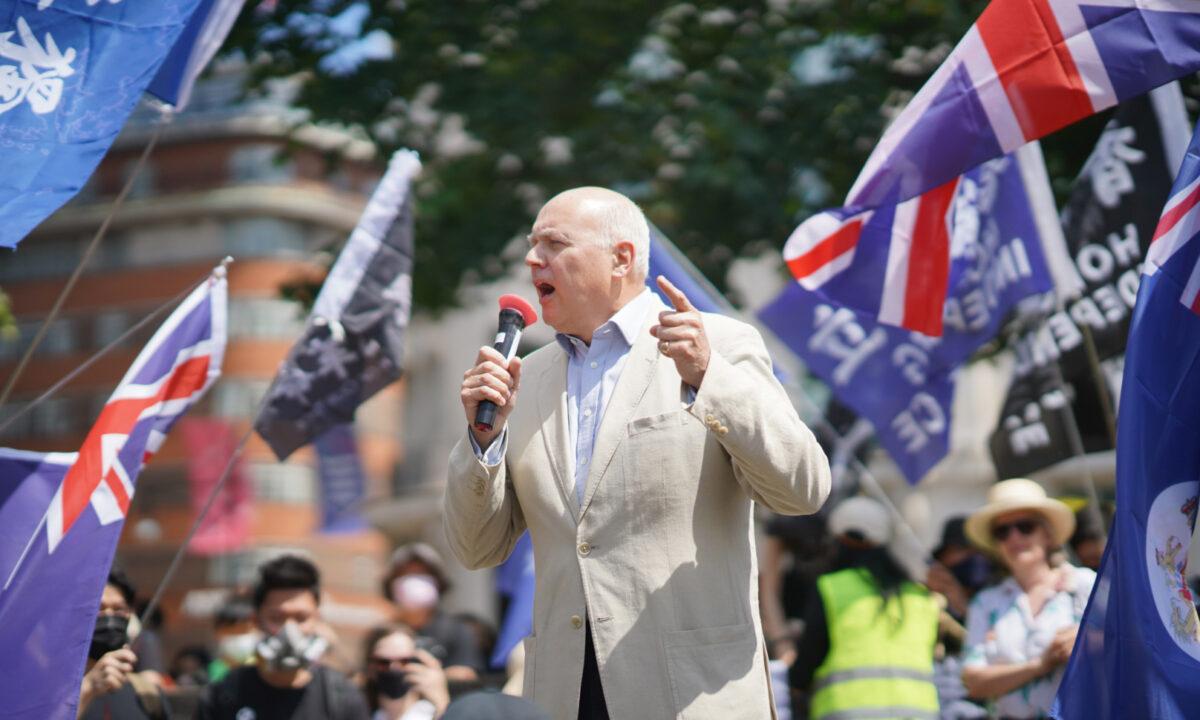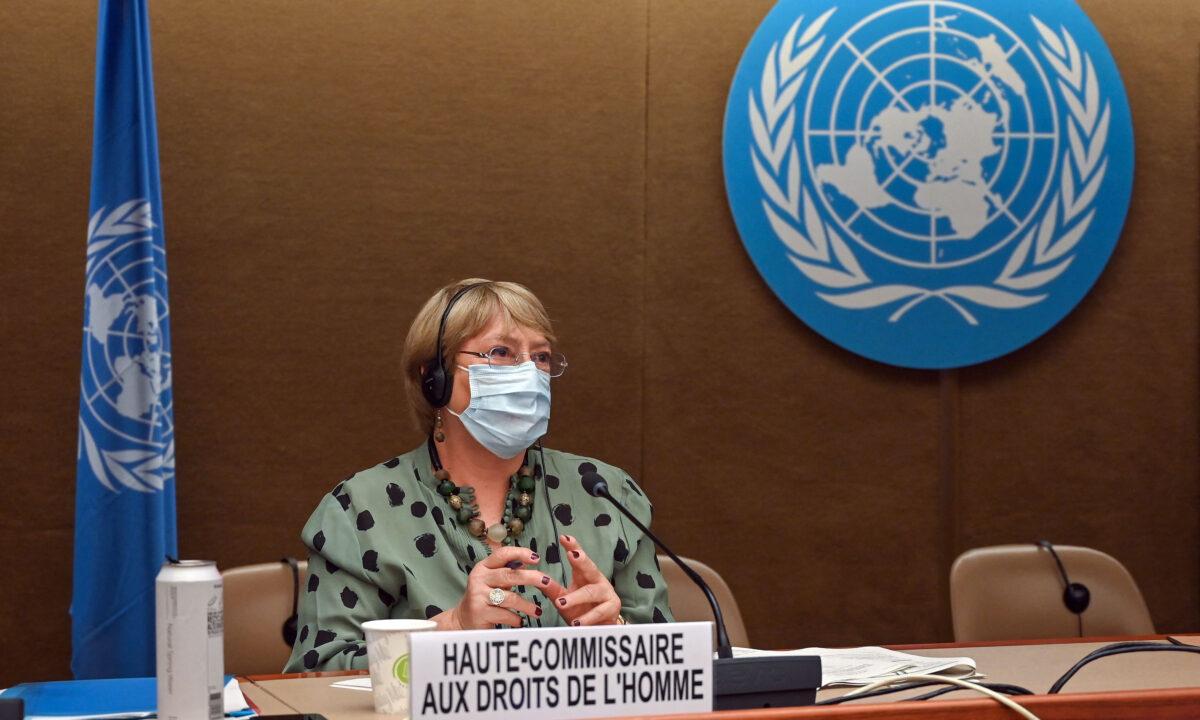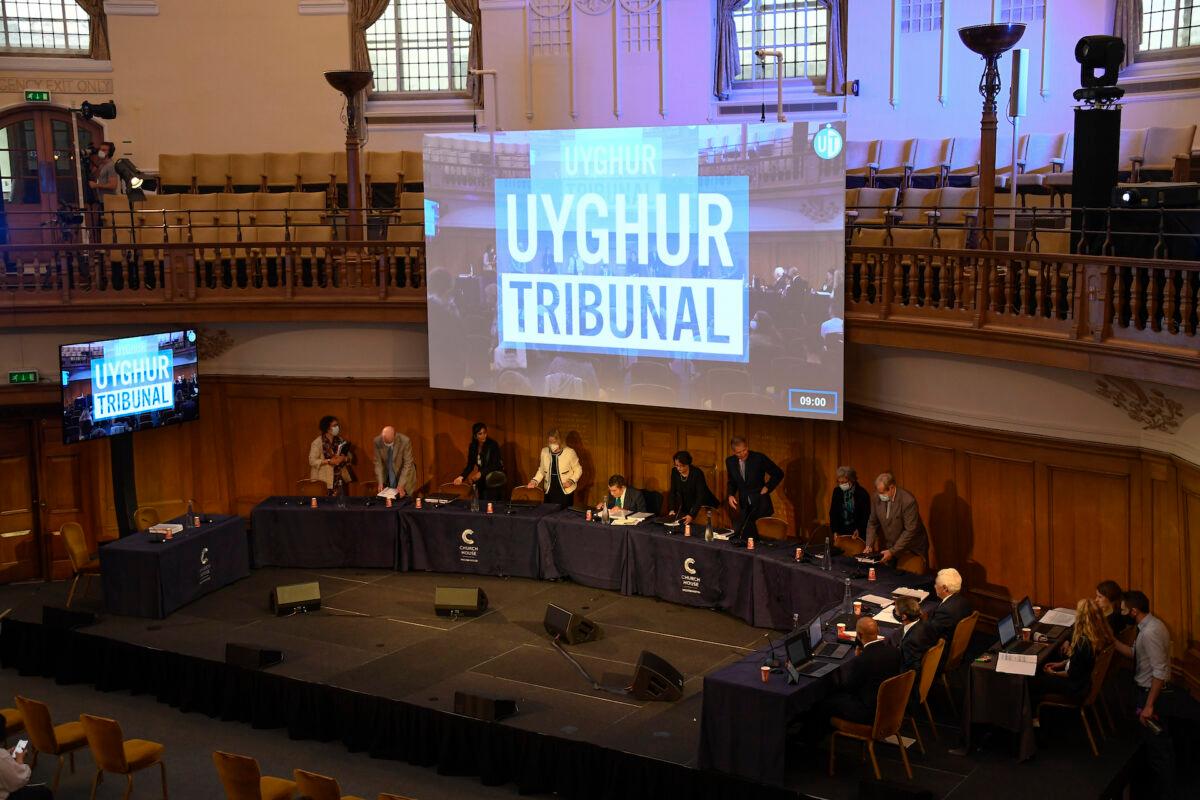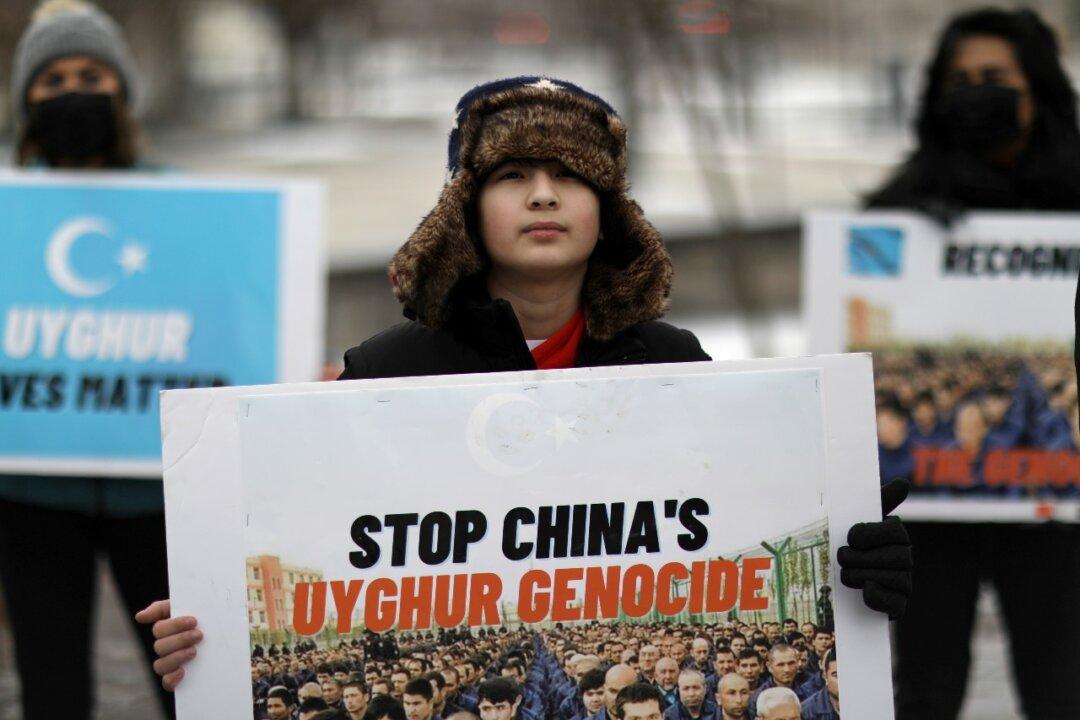A group of international lawmakers has called on the United Nations to investigate alleged genocide against Uyghur and other ethnic minorities in China, the Inter-Parliamentary Alliance on China (IPAC) said on Monday.
It comes as the 47th regular session of the U.N. Human Rights Council (OHCHR) began in Geneva on Monday.
In a letter to OHCHR President Nazhat Shameem Khan on Friday, 68 lawmakers from 18 legislatures around the world urged the U.N. to launch a commission of inquiry into the Xinjiang Uyghur Autonomous Region (XUAR) in China, to investigate allegations of genocide and crimes against humanity.
The lawmakers said the commission should be mandated to make recommendations to end gross human rights violations in Xinjiang committed by the Chinese regime and to report back regularly to the OHCHR.
The letter, coordinated by IPAC, a network of international lawmakers that pushes for a tougher stance on the Chinese regime, was also addressed to foreign ministers of eight democratic states represented by the OHCHR, including the United Kingdom, the Netherlands, France, Germany, Japan, Denmark, Italy, and the Czech Republic.
It said there has been mounting evidence that documents the Chinese regime’s brutal persecution of Uyghurs, Kazakhs, and other predominantly Muslim ethnic minorities in the XUAR, including arbitrary detention, forced labor, torture, political indoctrination, sexual abuse, forced sterilizations, forced abortions, and draconian birth control policies.
IPAC said that the international community is “legally and morally obliged” to prevent these “most egregious human rights violations” from happening, through the Genocide Convention, to which China is also a signatory.

British lawmaker, former Conservative Party leader Sir Iain Duncan Smith, said the OHCHR hasn’t fulfilled its purpose.
“We will not accept this. As mounting evidence indicates Genocide and Crimes Against Humanity taking place in the Uyghur Region, the U.N. must act to establish an independent inquiry into these abuses.”
German lawmaker Margarete Bause also said that the OHCHR has “failed to live up to this mission” as long as it “declines to investigate the alleged crimes taking place in Xinjiang.”
“Only a U.N.-led Commission of Inquiry can begin to bring hope of justice for the Uyghurs and other victims of persecution in the region,” she said.
Japanese lawmaker Shiori Yamao said the international community had turned a blind eye for too long to the “truly horrific” reports of human rights abuses in the XUAR.
“This month the Human Rights Council has the opportunity to put this right and put Xinjiang at the top of the agenda,” she said.

Speaking on Monday at the opening of the OHCHR session, U.N. High Commissioner for Human Rights Michelle Bachelet said she hoped to agree on terms for a visit this year to China, including its Xinjiang region.
“I continue to discuss with China modalities for a visit, including meaningful access, to the Xinjiang Uyghur Autonomous Region, and hope this can be achieved this year, particularly as reports of serious human rights violations continue to emerge,” Bachelet said.
It was the first time that Bachelet had publicly suggested a timeline for the visit, which her office has been attempting to arrange since September 2018.
On June 15, the Belgium Parliament passed a motion declaring that Uyghurs face “serious risk” of genocide and that they are victims of China’s crimes against humanity.

The tribunal plans to hold another four days of hearings in September, and hopes to issue its judgment by the end of the year.
Currently, two international courts that can potentially deal with genocide are both effectively paralyzed.
The International Court of Justice, which deals with state-sponsored genocide, can’t deal with allegations of genocide in China because of the country’s veto power in the U.N. Security Council.
The International Criminal Court, “where individuals are tried for grievous crimes,” needs the nation in question to be a signatory to the Rome Statute, which China is not.





